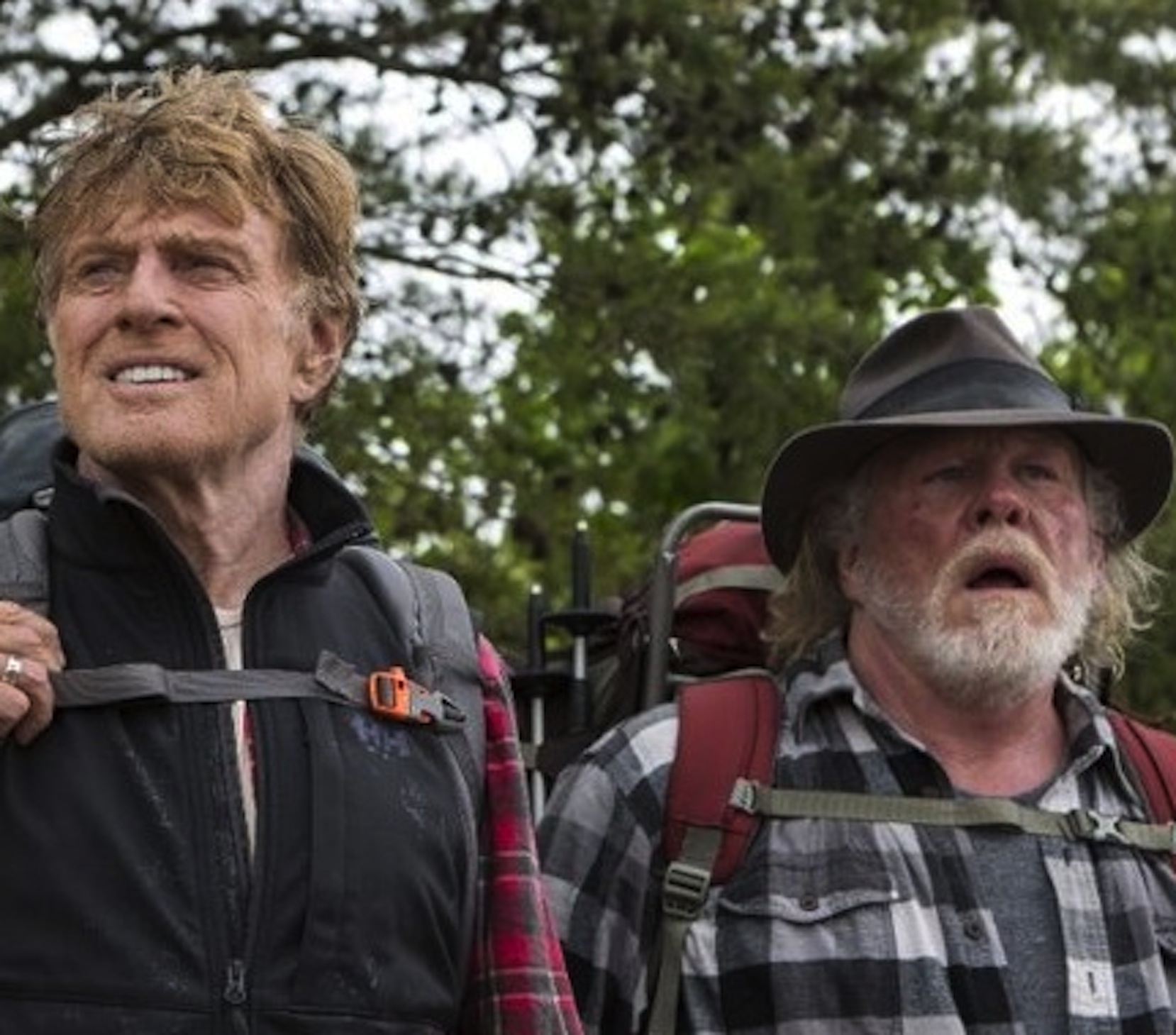Kwapis: A Walk in the Woods (2015)
 Monday, September 7, 2015
Monday, September 7, 2015 
At a critical juncture in A Walk in the Woods, Bill Bryson (Robert Redford) and Stephen Katz (Nick Nolte) stumble on something of a geological oddity: an escarpment that bears witness to igneous, sedimentary and metamorphic timeframes in a single sublime formation. It’s a good metaphor for the dissonant present tense that characterises the film as a whole, which is based on Bryson’s memoir about walking the Appalachian Trail with Katz in his forties, but instead features two leads in their seventies, presumably to compensate for the fact that Redford had been trying to get the film made almost since the book was published. As a result, the film treads an odd line between the comic mid-life crisis of Bryson’s book and a more sombre sense of old age, setting us adrift in a version of the present in which Bryson can research the trail on the latest MacAir but doesn’t even think to check for SmartPhone reception when he and Katz are trapped on a rocky ledge in what turns out to be the climax of the film. Bookish in the extreme yet shot emphatically on dronecams, each mise-en-scene exudes an atonal and somewhat melancholic quality, the ghost of a now distant multiplex blockbuster experience that may have done very well at the box office but still feels inextricably out of time. And although it does gradually settle into something resembling the picaresque sociability of the original book, it’s clear that this is a film that Redford should have directed, if only because its elegiac quality is so in keeping with his own directorial sensibility – or, more precisely, is elegising the late classical sensibility that he made his own whenever he took over the directorial reins, with actual shots feeling as if they are directly quoted from A River Runs Through It, The Milagro Beanfield War and The Company You Keep in particular. As in those films, character and narrative are somewhat subordinated to figures set against vast landscapes, as we travel through a veritable panorama of Redfordian Americana, culminating with the cosmic New England that feels so inextricable from late classical Hollywood, and his late classicism in particular. The fact that Bryson travels from his home in New Hampshire to Georgia only to retravel back towards a new fantasy of his own backyard – and the fact that he never quite makes it – only makes it feel even more like what could have been the quintessential Redford elegiac exercise, a period piece about the present in the vein of so many of his best films. And yet the film ultimately doesn’t belong to Redford but to Nolte, who by this point in his career is something to behold. Whereas even The Company You Keep sought to somewhat rehabilitate Nolte, this role is the very opposite of an apology, as Kwapis takes everything about Nolte that would seem to disqualify him for a Hollywood leading role, everything repulsive, abject and grotesque you could project onto him, and intensifies it while still managing to find him some dignity in the process, taking us to the very limits of what late work might entail. While the film may lack the eccentricities of Bryson’s own voice, there’s something quixotic about Nolte’s sheer presence, not least because Kwapis seems to do everything in his power to provoke his extremities, putting him in one punishing posture, position and perplexity after another until it’s a bit like simply watching Nolte work out, or rather work himself down to a sweating, seething, slobbering pile of misogynistic mayhem. Certainly, as some critics have mentioned, his character – and his rapport with Bryson – is fairly repulsive - and much more so than in the book - and yet there’s something incredible about the way Nolte’s sheer ambience already contains that repulsion that ends up humanising him in the process, as well as making for one of the most visceral and courageous performances in his long career.
Reader Comments